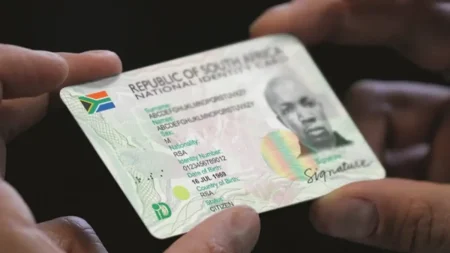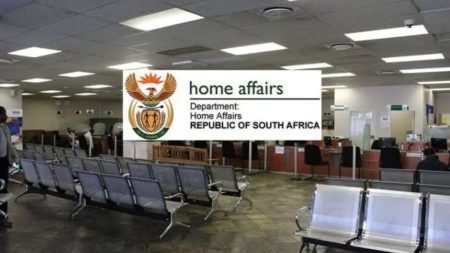Accidents on South Africa’s roads are a common and unfortunate reality, and those who are involved often face significant physical, emotional, and financial consequences. Fortunately, the Road Accident Fund (RAF) exists to provide compensation to those injured or who lose loved ones in road accidents. Understanding how RAF compensation is calculated can significantly impact how much you may receive. This article explores the various factors that influence the amount of RAF compensation you may be entitled to, helping you navigate the claims process and understand what to expect.
What is the Road Accident Fund (RAF)?
The Road Accident Fund (RAF) is a government-run institution created in 1999 to provide compensation for individuals who are injured or killed in road accidents in South Africa. The primary aim of the fund is to ensure that victims of motor vehicle accidents are compensated for damages, including medical costs, loss of income, and emotional trauma.
The RAF compensates both victims and the families of those who have tragically lost their lives in road accidents caused by negligent driving or other preventable circumstances. For many South Africans, the RAF compensation is a vital resource, particularly when individuals do not have insurance or the financial means to pay for the medical and rehabilitation costs that arise from an accident.
Learn More: RAF Claim Status: How to Check if Your Claim Has Been Processed
How is RAF Compensation Calculated?
The amount of RAF compensation you receive depends on a number of factors. Each of these factors contributes to the overall evaluation of your injuries, loss, and the financial impact caused by the accident. Understanding these factors can help you better anticipate the compensation payout you may receive from the Road Accident Fund.
1. The Severity of Injuries
One of the most important factors in calculating RAF compensation is the severity of your injuries. If you suffer life-altering injuries—such as spinal cord damage, brain injuries, amputations, or permanent disability—your compensation payout will be much higher. On the other hand, if you experience less severe injuries such as minor fractures or soft tissue damage, your RAF compensation payout will be lower.
The RAF compensation system includes “general damages” that cover the pain, suffering, and loss of enjoyment of life caused by the accident. In cases where the injuries are severe, the general damages payout is often substantial.
2. Medical Expenses
Medical expenses are another essential consideration when calculating RAF compensation. If you incurred significant medical costs following the accident—such as surgery, hospital stays, medication, or physiotherapy—you are entitled to compensation for those costs.
The RAF compensates you for both past and future medical expenses that are related to the injuries sustained in the accident. For example, if you are required to undergo long-term rehabilitation or need ongoing medical treatments, these future costs will also be included in your RAF compensation.
To ensure you receive the full medical compensation, it’s crucial to keep a record of all medical bills, receipts, and treatments. These documents serve as proof of the medical expenses incurred due to the accident, which can support your claim for RAF compensation.
3. Loss of Earnings or Earning Capacity
If the accident caused you to miss work due to your injuries, the RAF compensation will include compensation for the wages or income lost during the recovery period. This is particularly important for those who had to take an extended leave of absence from their job or career because of the accident.
Additionally, the RAF compensation will also consider loss of earning capacity—the potential future income that you will be unable to earn due to permanent injuries or disabilities. For example, if your injuries prevent you from pursuing a promotion, advancing in your career, or running your business, this future loss of income will factor into the calculation of your RAF compensation.
4. The Impact of the Accident on Your Lifestyle
The extent to which the accident has affected your everyday life also plays a significant role in determining RAF compensation. If the injuries sustained have left you unable to perform regular tasks—such as taking care of your family, driving, or engaging in recreational activities—your compensation payout will reflect this loss.
In particularly severe cases, if the victim’s spouse or close family members suffer emotionally from the accident, compensation for loss of consortium might be included. This refers to the loss of companionship, affection, and support caused by the victim’s injury or death.
5. Who Was at Fault for the Accident?
Although the Road Accident Fund (RAF) is a no-fault system, meaning that you do not have to prove that someone else was at fault to claim compensation, the issue of fault can still play a role in the amount of RAF compensation you are awarded. The RAF compensates you for your injuries, regardless of fault, but if the other party was negligent or reckless—such as being intoxicated while driving—the RAF compensation could be affected.
However, it is important to note that if you, the claimant, are found partially at fault for the accident (e.g., you were speeding or not following traffic laws), this could lead to a reduction in your RAF compensation. This reduction is known as contributory negligence, where the compensation is reduced in proportion to the degree of fault attributed to the injured party.
6. The Victim’s Age and Life Expectancy
Your age can also play a role in the calculation of RAF compensation, particularly when it comes to future medical expenses and loss of earnings. Younger victims, who are likely to have many years of work and income ahead of them, may receive a higher compensation payout than older individuals nearing retirement.
The RAF takes life expectancy into account when determining future expenses related to care and treatment. If you are expected to live for many more years, this will result in a larger RAF compensation payout to cover the ongoing costs associated with your injuries.
7. Funeral Expenses (in Case of Death)
In cases where the accident results in a fatality, the family members of the deceased can claim compensation from the RAF. One of the key aspects of this compensation is covering funeral expenses, which can be significant. The RAF reimburses reasonable costs associated with the funeral, burial, and any related ceremonies.
In addition to covering funeral costs, the family may also be eligible to claim for loss of support if the deceased was the primary breadwinner of the family. This compensation helps to ease the financial burden caused by the death of a loved one.
How to Apply for RAF Compensation
To apply for RAF compensation, it is important to submit your claim within two years of the accident. You will need to provide various documents, such as medical reports, accident reports, proof of lost income, and any other relevant paperwork to support your claim.
If you are unsure about the claims process or want to ensure that you maximize your RAF compensation, it is highly recommended to seek advice from a legal professional who specializes in RAF compensation claims. They can guide you through the process, making sure that you have all the necessary documentation and help you secure the compensation you deserve.
The Road Accident Fund (RAF) provides an essential service to individuals who have been injured or killed in road accidents, offering compensation for medical costs, loss of income, and emotional trauma. Understanding how RAF compensation is calculated is crucial for anyone who has been involved in an accident, as it allows you to be aware of your entitlements. By considering factors such as injury severity, medical expenses, lost earnings, and lifestyle impact, you can better navigate the RAF claims process and ensure that you receive a fair compensation payout.
If you have been involved in an accident, seeking professional legal advice can make a significant difference in securing the compensation that you deserve from the RAF.










